COMPLETED RESEARCH
Developing Capacity of MFIs for Fighting Covid-19 Impact in Bangladesh
Based on an InM online survey, the analysis shows vulnerable financial and operational conditions especially for the small and medium sized MFIs due to Covid-19. When compared Relative to the previous three months, the number of new loans declined by more than 29 per cent during April-June 2020 while the number of regular savers declined by 36 per cent. Moreover, around 94 per cent of the reporting MFIs experienced negative net earnings during the pandemic. The average repayment rate sharply declined to 63 per cent compared with nearly 100 per cent. The MFIs also report a huge cash flow crisis due to the pandemic. They have used their reserve funds and reduced operational costs through austerity measures. But these are grossly inadequate relative to the scale of the problems. External support e.g. from the government and other agencies through targeted ‘stimulus package’ for the MFIs and other support measures are necessary for the MFIs.
Covid-19 and MFIs in Bangladesh: Innovations in Resilience Building
An online survey by InM during May-July 2020 on 59 MFIs shows that, irrespective of their size, MFIs face difficulties in interactions with the borrowers at the field, bottlenecks in delivering nonfinancial services, and constraints in collecting repayments and disbursing new loan products. Around 93 per cent of the MFIs face rising portfolio at risk (PAR). To recover from the crisis, most MFIs have adopted several actions. Around 51 per cent of the large MFIs have revised their loan distribution policy as per the need of their clients. Most medium and small MFIs do not have the capacity to adopt loan rescheduling measures on their own. Their recovery strategies need to cover actions that are necessary to overcome the Covid-19 generated crisis and help the MFIs and clients to return to their normal activities.
Baseline Study of the Project- Scaling WaterCredit in Bangladesh
Improving Fiscal Decentralisation for Local Government Institutions
Transforming the Agri-food Sector towards a Modern, Sustainable Advanced Economy: Looking Beyond 2030 Towards Achieving Bangladesh’s Vision 2041
Bangladesh Voluntary National Review (VNR) 2020: Fostering Inclusiveness for Shared Prosperity
ONGOING RESEARCH
The Psychology of Covid-19 and Financial Behaviour: The Urban Middle Class in Bangladesh
This InM online survey based study captures the adjustments in economic behaviour and changes in the choice of financial instruments by the urban middle class due to Covid-19 pandemic in Bangladesh. The analysis shows that 43 per cent of the surveyed households have experienced income losses; 57 per cent of the lower middle class (LMC) households suffered income losses as against only 19 per cent of the upper middle class (UMC) households. This shows a more stable income source for the UMC households. Nearly one-third of the LMC households reduced their food costs compared with 6 per cent of the UMC households to mitigate the income effect of the Covid-19 pandemic. During the pandemic, the middle class households have transformed their financial behaviour more towards digital and online markets with nearly two-thirds reporting high reliance on online purchases. The observed changes indicate a long term transformation in the financial behaviour of the middle class households. The study highlights the need for elimination of all sources of vulnerability of the country’s middle class, specifically the challenges of the LMC. The rising expectations of the expanding middle class are the critical drivers of social change in Bangladesh, needed to overcome the low living standards of the majority of the population and reach the cherished goal of emerging as a high income country by 2041. The key for such dynamic transformations is the creation of a more learning middle class; that is, a dynamic middle class that would be ready to exploit the opportunities of the ‘new normal’ after the Covid-19 pandemic.
Virtual meeting with IMF’s Bangladesh team
As part of the 2020 Annual Staff Visit programme, the International Monetary Fund’s (IMF) Bangladesh Team held a virtual discussion with InM on 06 December 2020. The joint discussion was attended by InM, PKSF and SME Foundation, From InM, Executive Director Dr. Mustafa K. Mujeri and Dr. Farhana Nargis, Research Fellow attended the meeting; while Mr. Mohammad Moinuddin Abdullah, Managing Director, Mr. Md. Fazlul Kader, Deputy Managing Director, Read More
TRAINING
Online Training for Town Managers of LIUPCP/UNDP
An ‘Online Advanced Training on Handling the Post COVID Challenges in Micro-Enterprise Management’ was designed and implemented by InM during 29-30 November 2020. A total of 20 Town Managers of LIUPCP/UNDP participated in the training programme from City Corporations/Pourashavas. Dr. M. Sadeque, Director InM Training Division was the course coordinator, which covered several areas, including: Read More
Newly Designed Online Training Course for the Branch Managers of PADAKHEP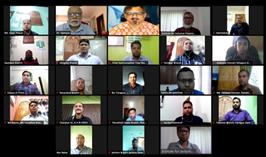
To cope up with the setback concerning realisation and disbursement due to Covid-19 pandemic coupled with the devastating flood in July 2020, Read More
Online Training for the Senior Microfinance Professionals of SETU
This online training to identify the challenges and suggest practical 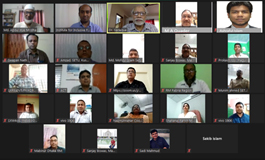 options for developing required skills of MFIs’ operational staff on ‘Building Skills of Managers on Post Covid Microfinance Operations and Management’ on 21 November 2020 was attended by 20 participants of SETU from Kushtia. options for developing required skills of MFIs’ operational staff on ‘Building Skills of Managers on Post Covid Microfinance Operations and Management’ on 21 November 2020 was attended by 20 participants of SETU from Kushtia.
Training and Capacity Development
Online training on post Covid-19 challenges for LIUPCP/UNDP professionals
An online training programme on ‘Handling the Post COVID Challenges in Microenterprise Management’ was organised by InM during 27-29 October Read More
International Training on Prevention of Financial Crime in the Financial Sector
InM, jointly with Banking Finance and Insurance Institute of Nepal (BFIN), organised an international training course on “Prevention of 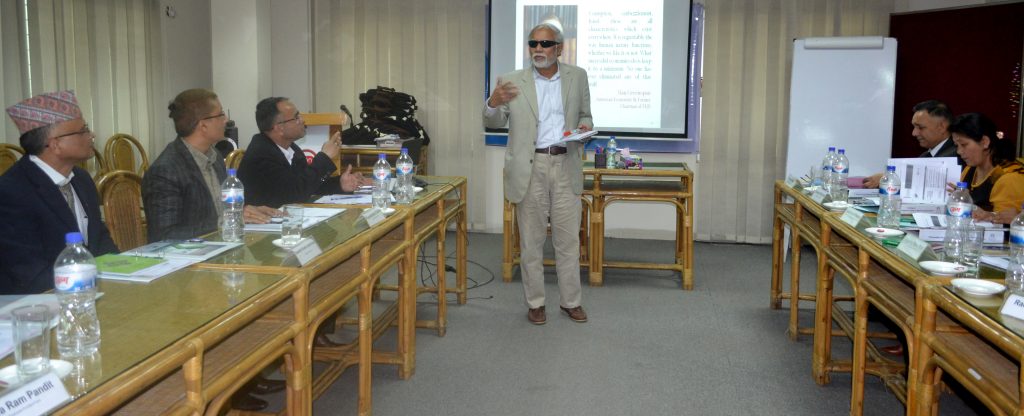 Financial Crime in the Financial Sector” to address contemporary financial crimes–a threat to the development of global economies and its stability. Read More Financial Crime in the Financial Sector” to address contemporary financial crimes–a threat to the development of global economies and its stability. Read More
EDUCATION
Certification Distribution among the Participants of Diploma Programme
The participants of Diploma in Microfinance Programme (10th batch) received certificates from 8 to 10 December, 2020 at InM training centre, Monsurabad, Dhaka. Institute usually distributes certificates among the participants through graduation ceremony. But this year, the certificates were distributed in person due to the outbreak of COVID-19.
10th batch diploma results published
The result of the 10th batch of the InM Diploma in Microfinance Programme was published in September 2020. A total of 24 participants successfully completed the programme. With this batch, the total number of successful diploma graduates has risen to 244, who are expected to form the core of the skilled workforce in the microfinance sector. The successful graduates will be awarded their certificates by InM without any formal graduation ceremony this year due to the Covid-19 pandemic.
2nd Semester of Diploma in Microfinance Programme Ends
The 2nd semester of the 10th batch of InM Diploma in Microfinance programme has ended with the final examination during June-July 2020. The courses and examinations of the 2nd semester were conducted online due to the Covid-19 pandemic. A total of 25 participants from 12 MFIs attended the programme. The results are expected to be published in September 2020.
Diploma Classes (10th Batch) with eminent Persons
The 2nd quarter of the 10th batch of diploma programme started in early 2020 but has been temporarily suspended due to COVID-19 pandemic. During the 2nd quarter, three courses are being offered covering MIS of microfinance programme, governance and regulations of MFIs and human resources development of the MFIs. Earlier, the results of the first quarter were published in February 2020. A total 27 participants came out successfully. The internship programme of 10th batch participants has also been completed.
Under the guest speaker programme, three more sector leaders and eminent persons spoke to the participants--Mr. M. Badruddoza, Faculty of United International University; Mr. Md. Shazzad Hossain, General Manager, Bangladesh Bank; and Mr. Sushil Ray, Advisor, ASA.
|
0f0 |
PUBLICATIONS
Bangladesh at Fifty: Moving beyond Development Traps
Mustafa K. Mujeri and Neaz Mujeri
Palgrave Macmillan, London, November 2020, pp. 569 + xxi
The book, published under the Palgrave Studies in 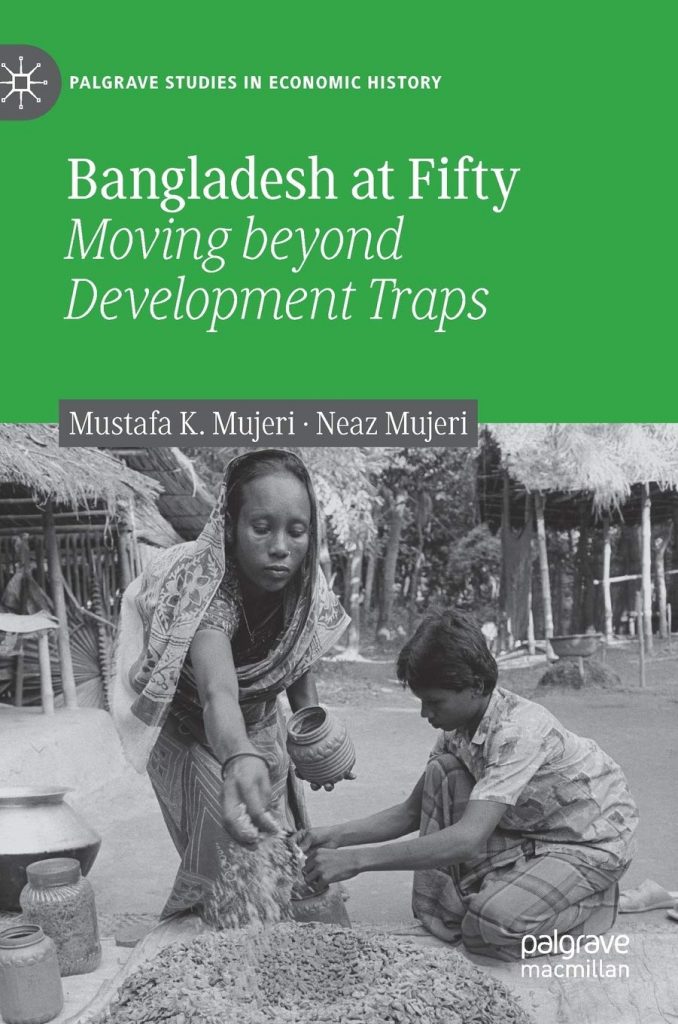 Economic History, examines the unfolding of Bangladesh’s development drama over the past fifty years, which is full of development surprises and extraordinary resilience of the people. Rising from the ashes, the country has now emerged as one of Asia’s most remarkable phoenixes and amasing and unexpected success stories of recent years. The book argues that Bangladesh’s economic transformation over the last fifty years has largely been driven by social changes, initiated by women empowerment. Bangladesh’s agricultural modernisation model characterises the sequencing of chemicalisation and mechanisation. The pattern of industrialisation has been closely linked with urbanisation and the developments are more akin to the ‘production cities’ paradigm in contrast with the ‘consumption cities’ approach. The authors caution that it is true that Bangladesh has shown remarkable catching-up records in recent years through raising economic growth and fostering overall development, but many development traps still remain in its future journey. Economic History, examines the unfolding of Bangladesh’s development drama over the past fifty years, which is full of development surprises and extraordinary resilience of the people. Rising from the ashes, the country has now emerged as one of Asia’s most remarkable phoenixes and amasing and unexpected success stories of recent years. The book argues that Bangladesh’s economic transformation over the last fifty years has largely been driven by social changes, initiated by women empowerment. Bangladesh’s agricultural modernisation model characterises the sequencing of chemicalisation and mechanisation. The pattern of industrialisation has been closely linked with urbanisation and the developments are more akin to the ‘production cities’ paradigm in contrast with the ‘consumption cities’ approach. The authors caution that it is true that Bangladesh has shown remarkable catching-up records in recent years through raising economic growth and fostering overall development, but many development traps still remain in its future journey.
Strategies and Policies for an Upper Middle Income Bangladesh
Fourth BEF Conference Volume
Edited by Sadiq Ahmed and Mustafa K. Mujeri
Bangladesh Economists’ Forum, Dhaka, March 2020, pp. 334+ xviii
The book focuses on a few core development challenges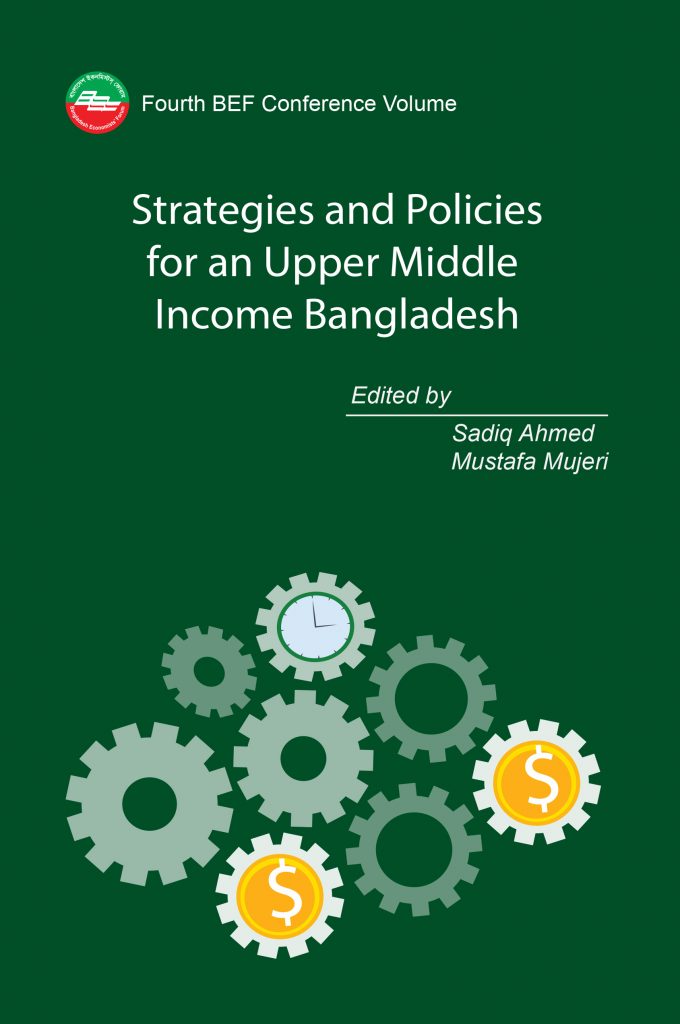 under two themes-- macroeconomic strategies and policies, and institutions and sectoral strategies--for successfully transforming Bangladesh to an upper middle-income country by 2031. Bangladesh faces many policy and institutional reform challenges in its journey. The book highlights that, along with acceleration in investment for sustained long-run economic growth, commensurate progress is needed in building human capital, investment in R&D, technology and innovation, and development of institutions to support higher growth. Bangladesh must push forward rapidly with the policy and institutional reform challenges for securing its transition. under two themes-- macroeconomic strategies and policies, and institutions and sectoral strategies--for successfully transforming Bangladesh to an upper middle-income country by 2031. Bangladesh faces many policy and institutional reform challenges in its journey. The book highlights that, along with acceleration in investment for sustained long-run economic growth, commensurate progress is needed in building human capital, investment in R&D, technology and innovation, and development of institutions to support higher growth. Bangladesh must push forward rapidly with the policy and institutional reform challenges for securing its transition.
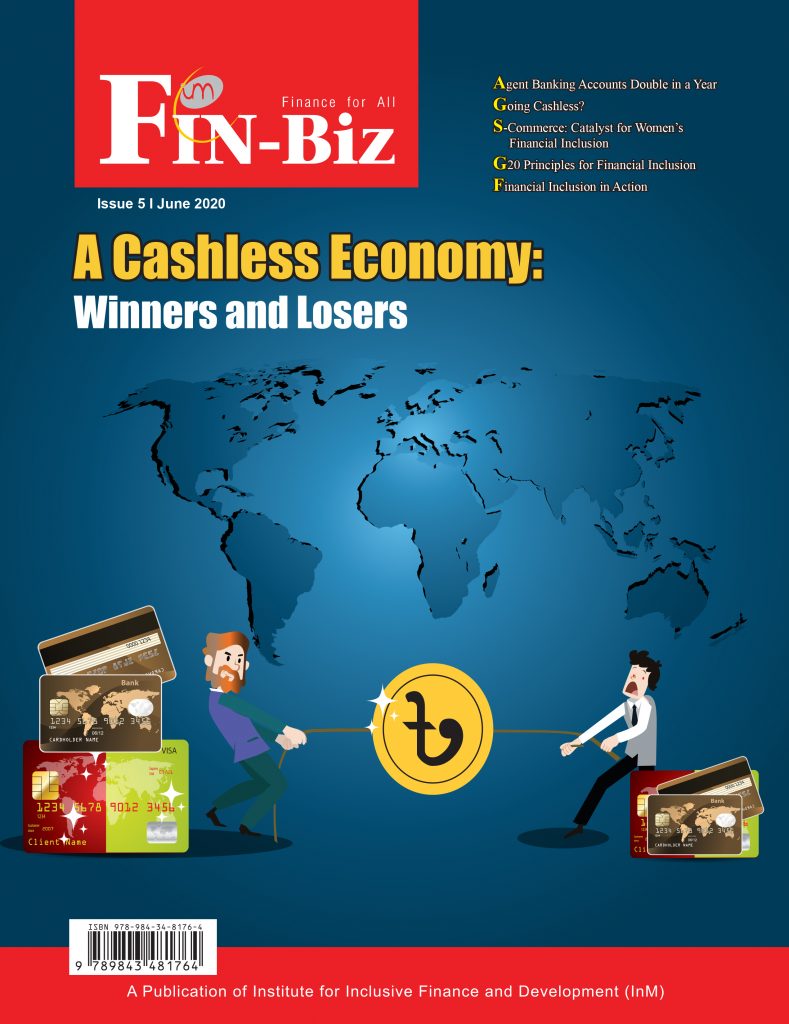 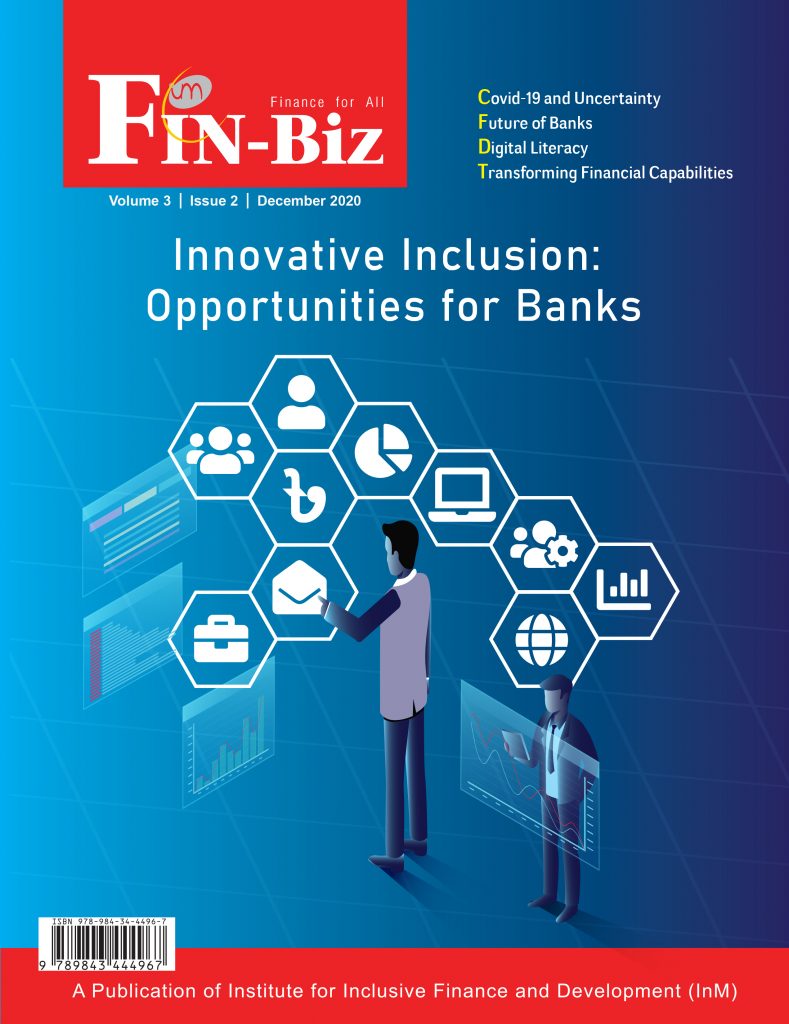
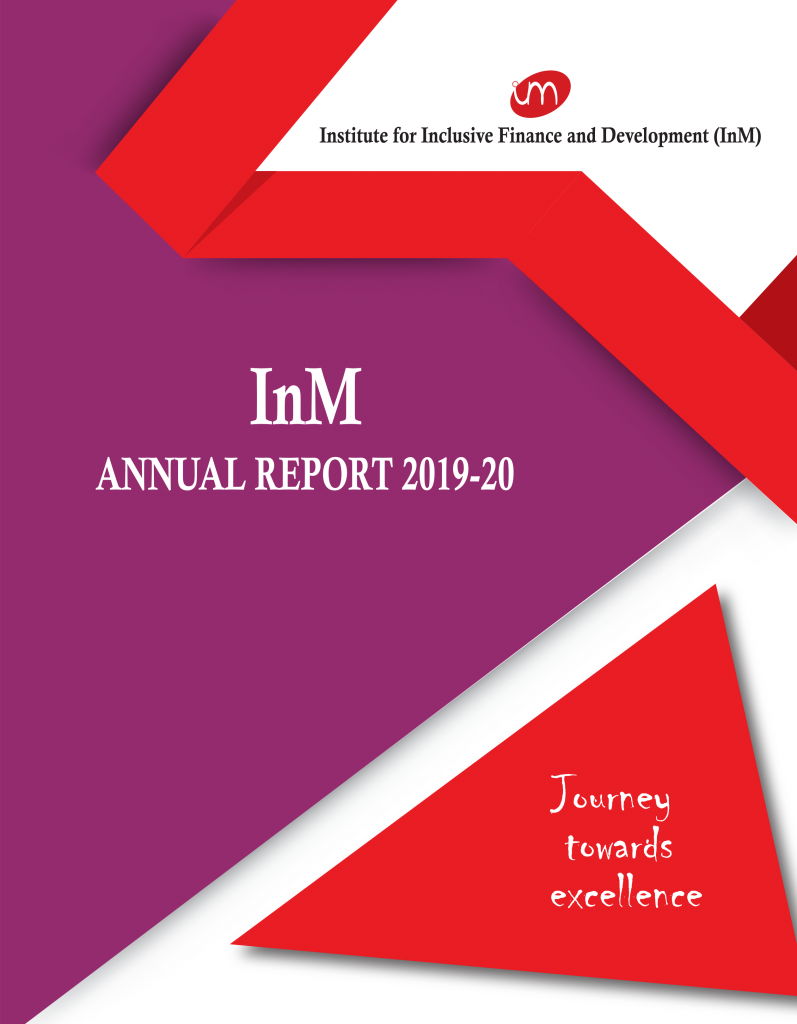 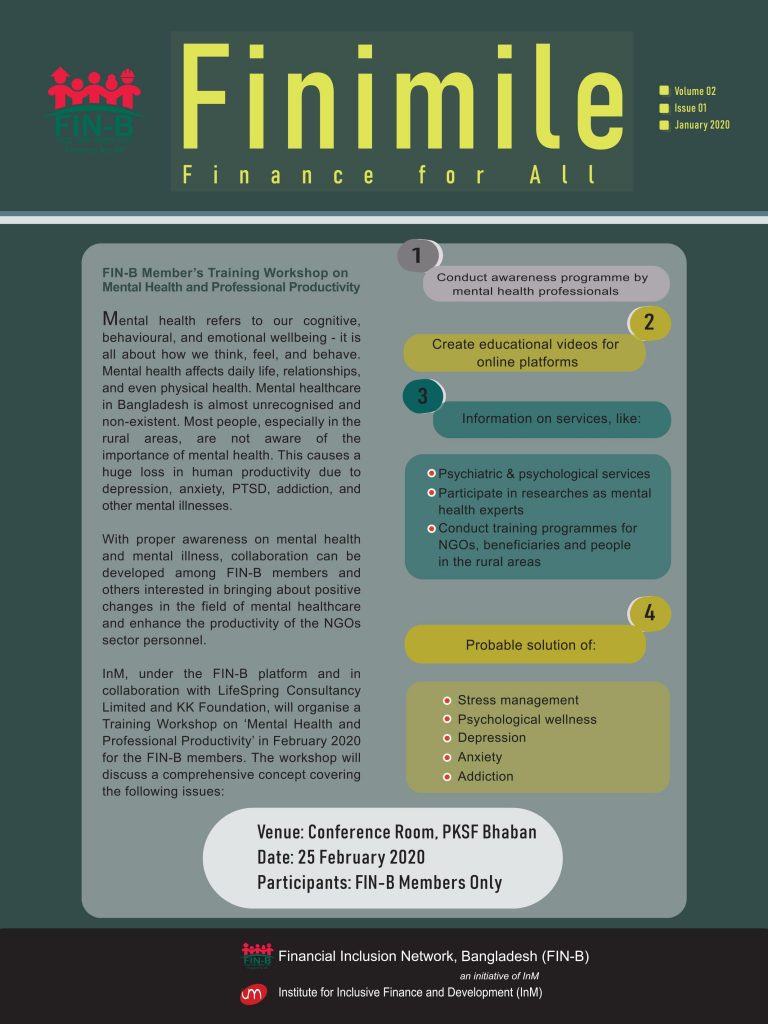
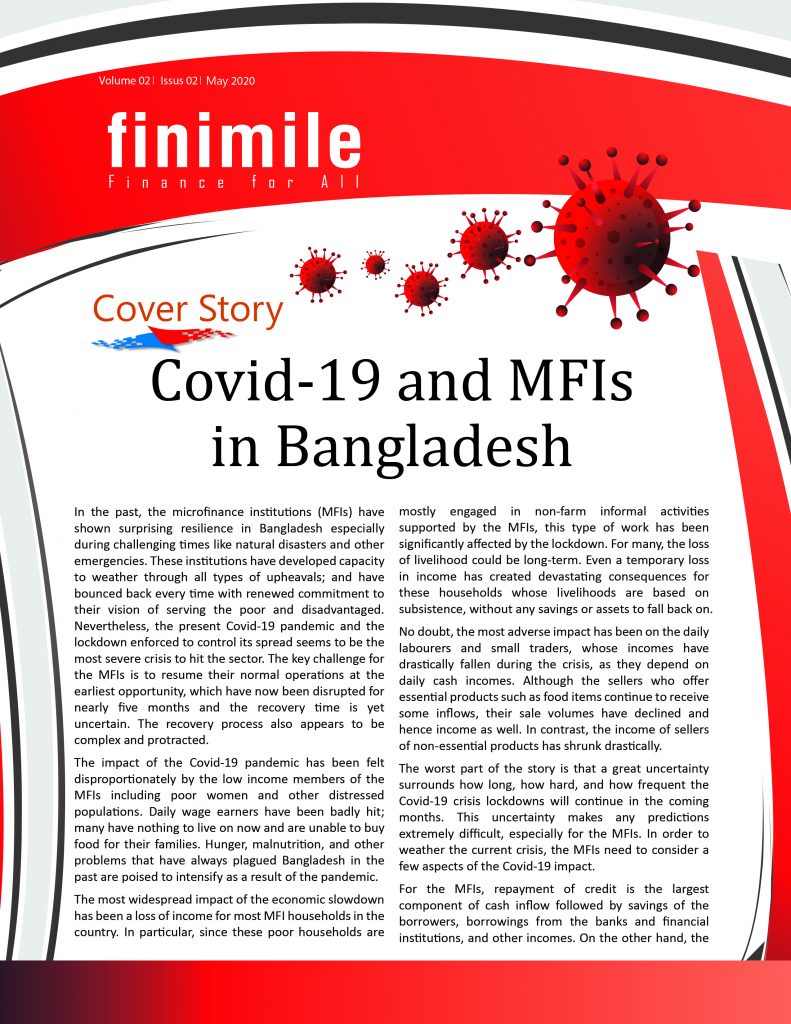 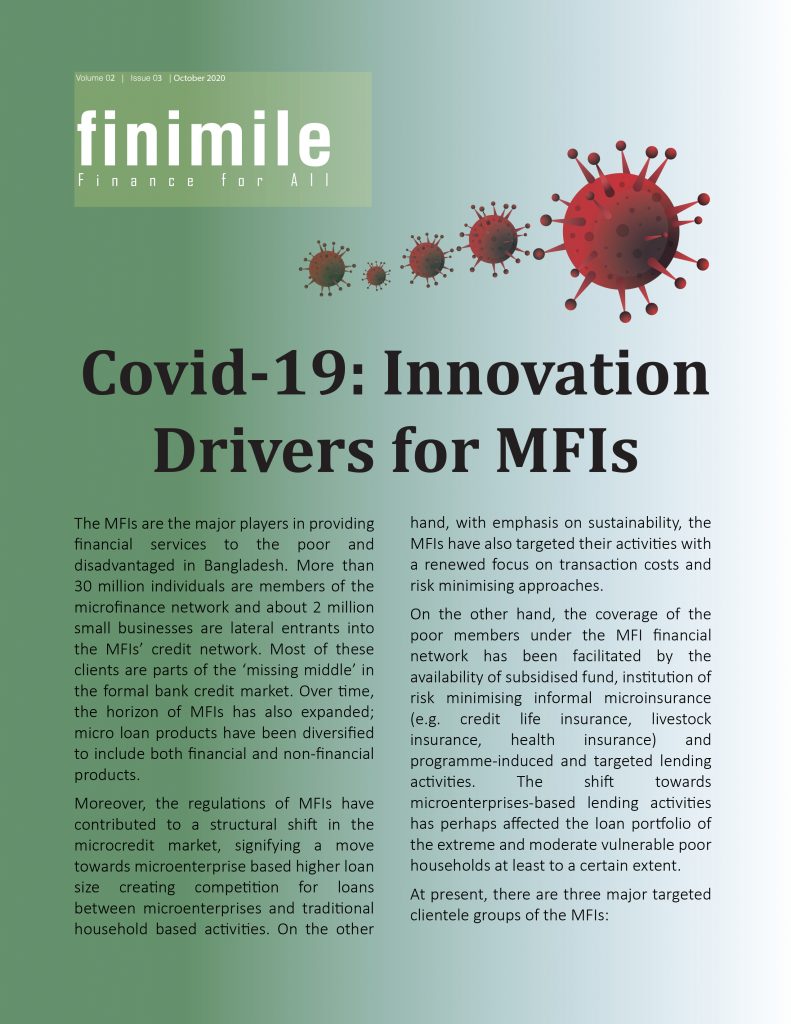
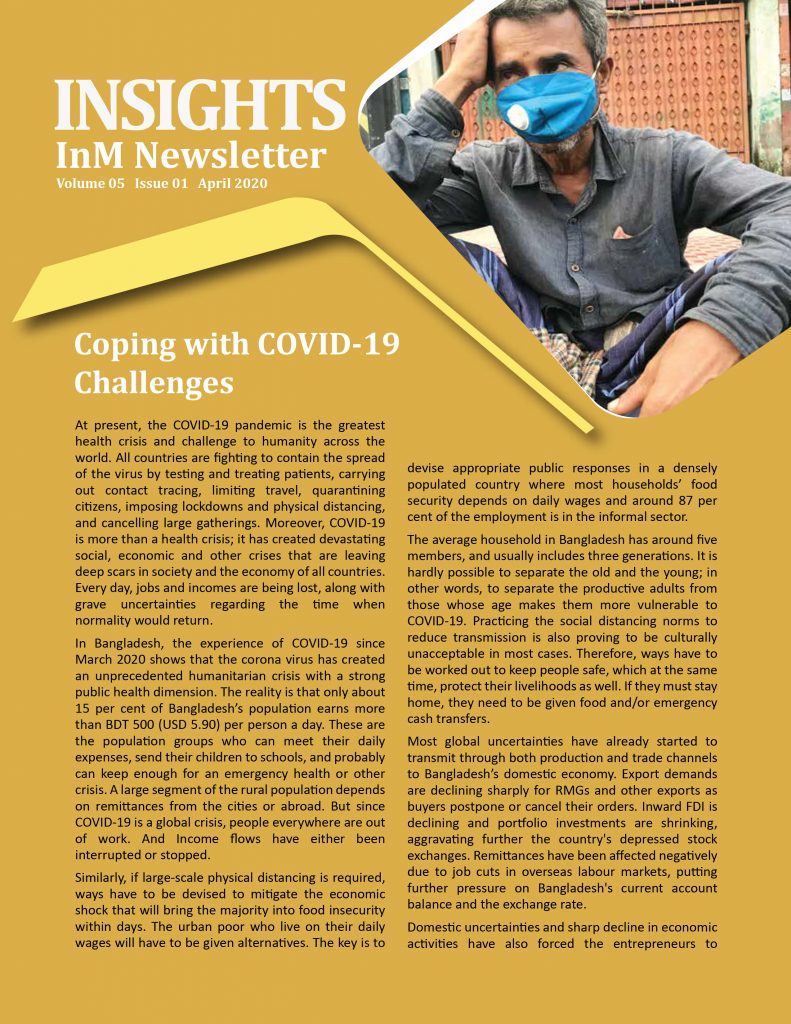 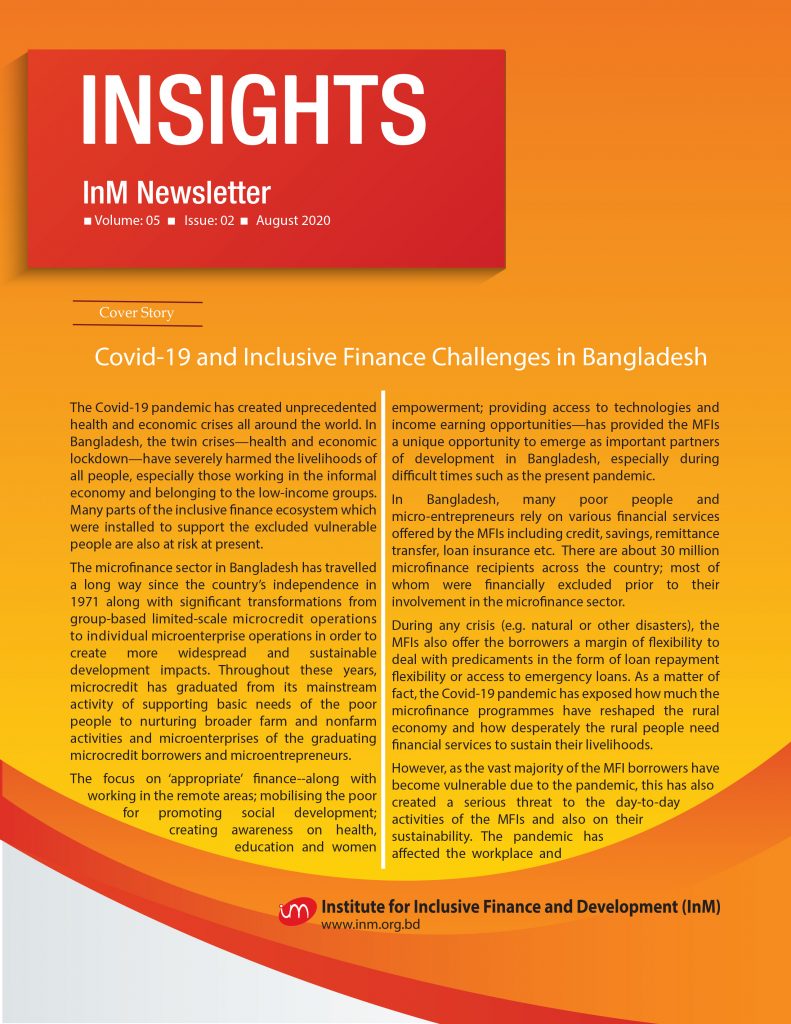
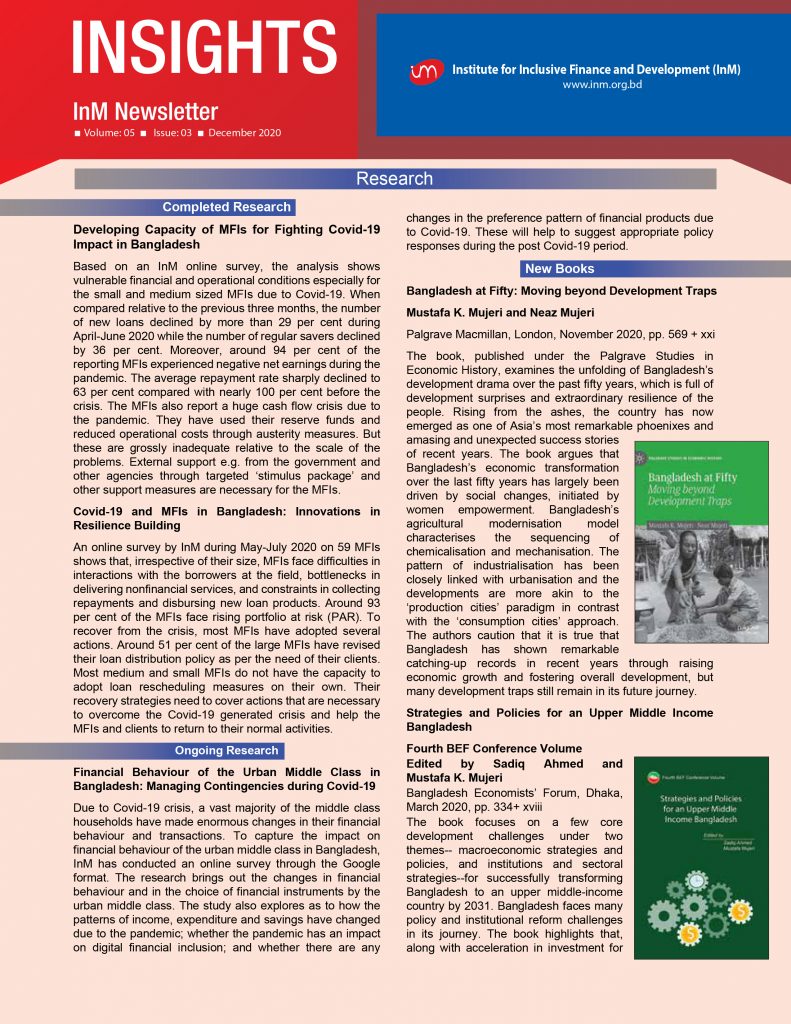 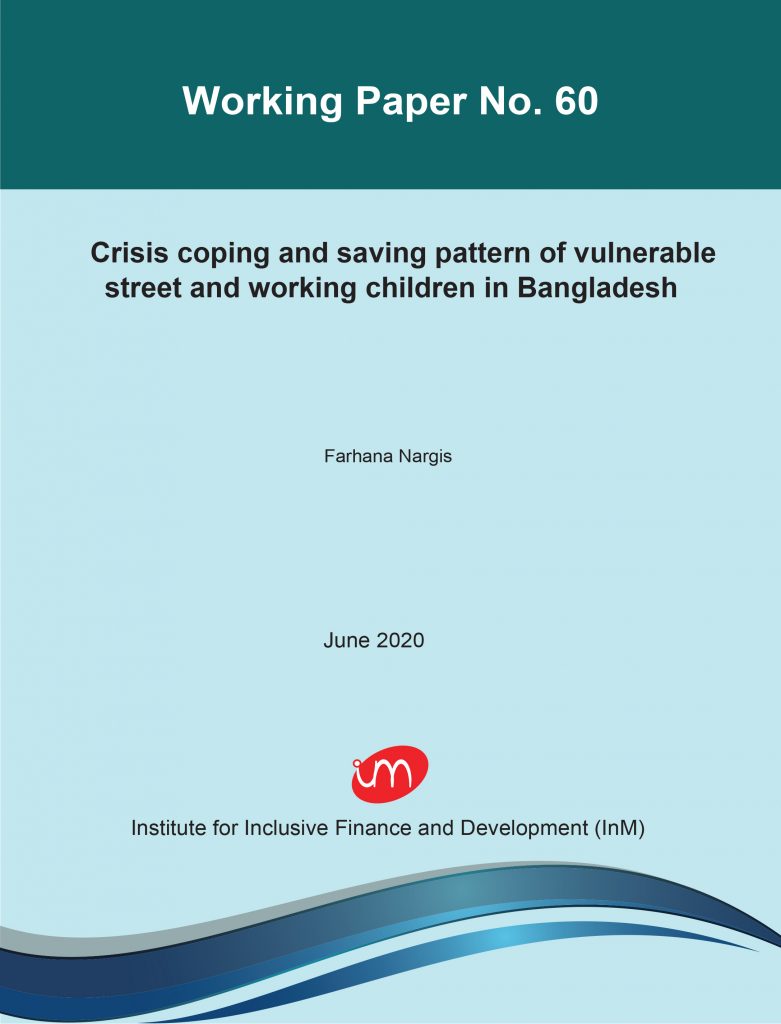
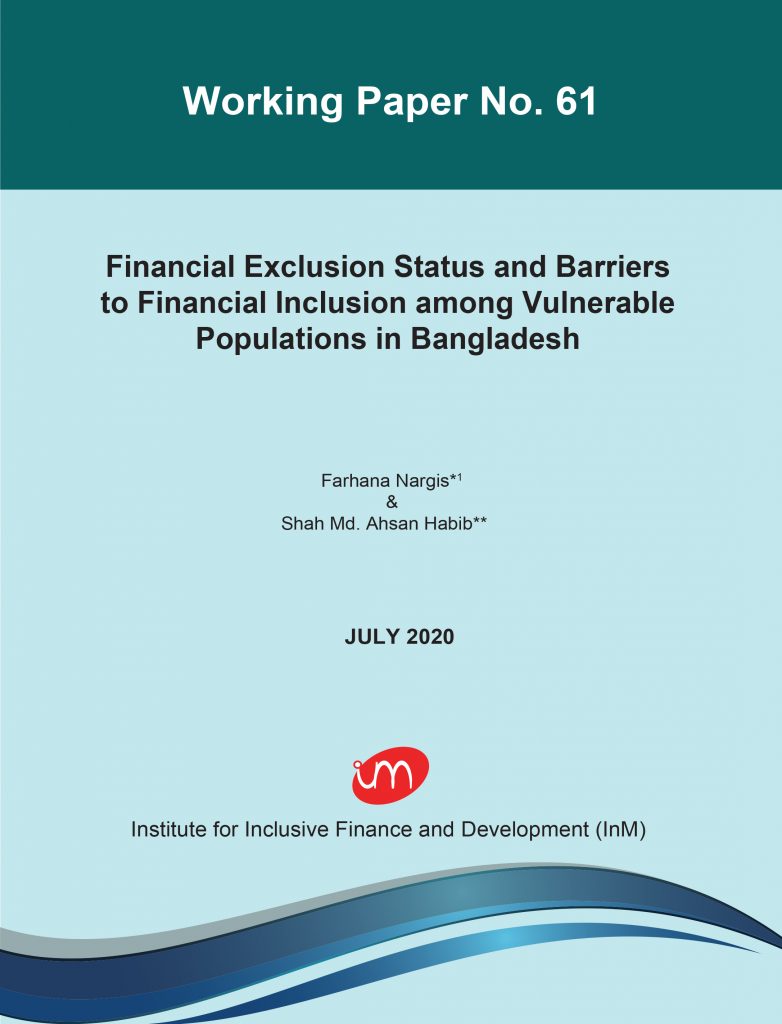 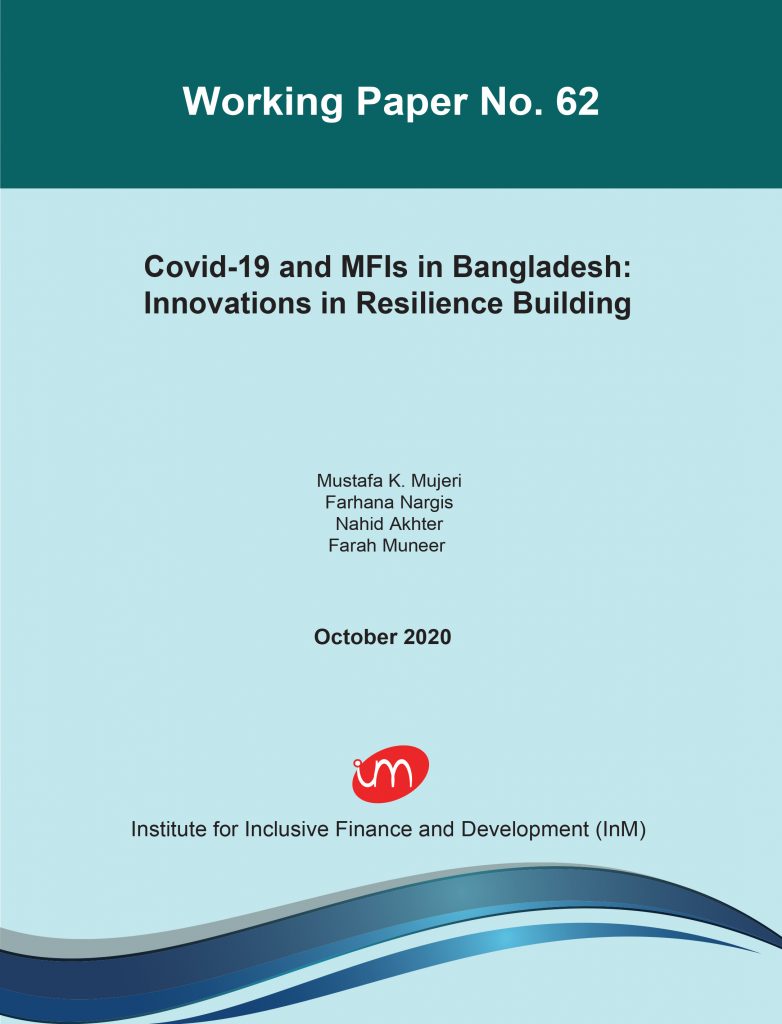
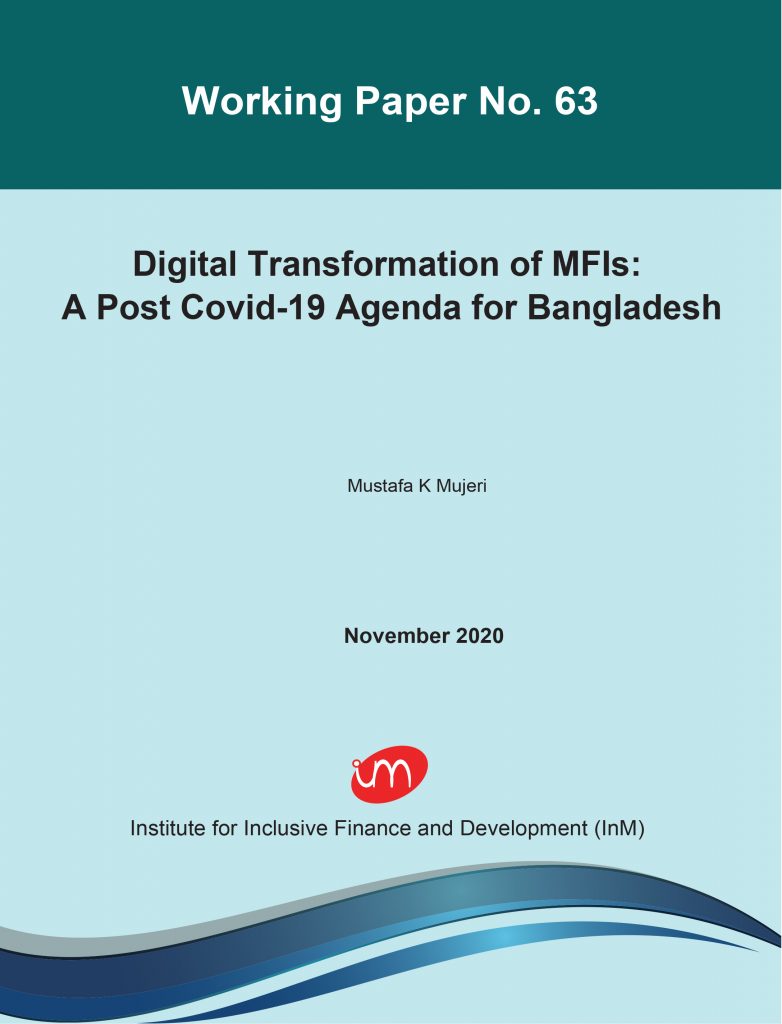 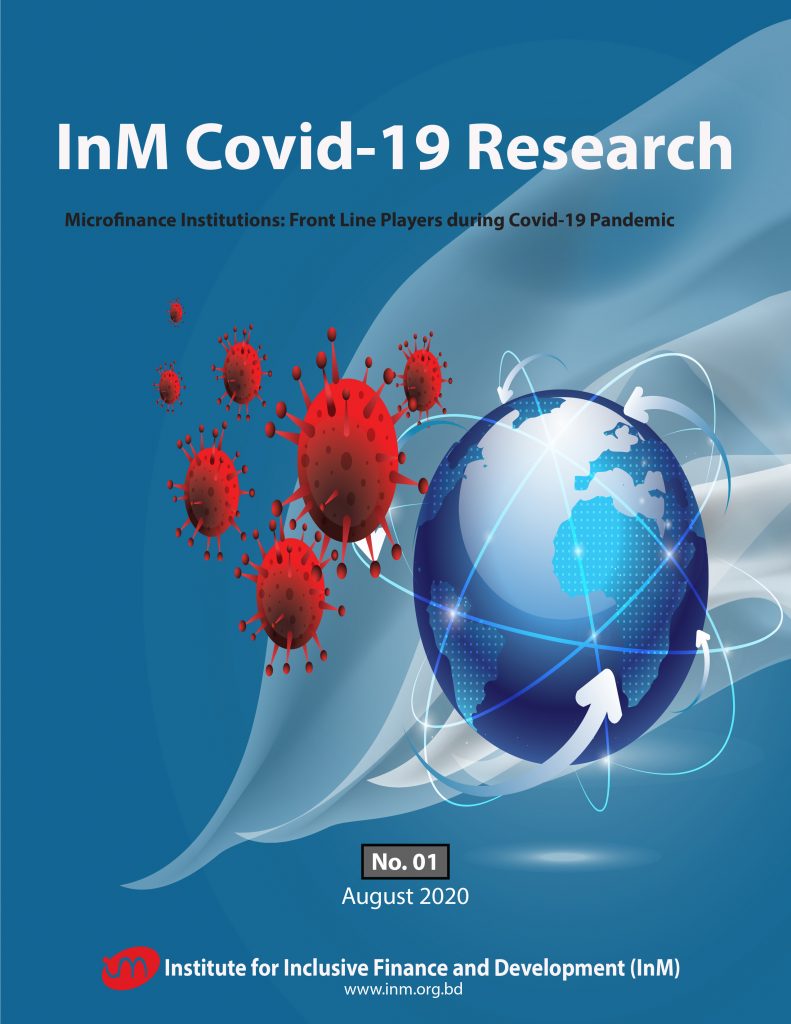
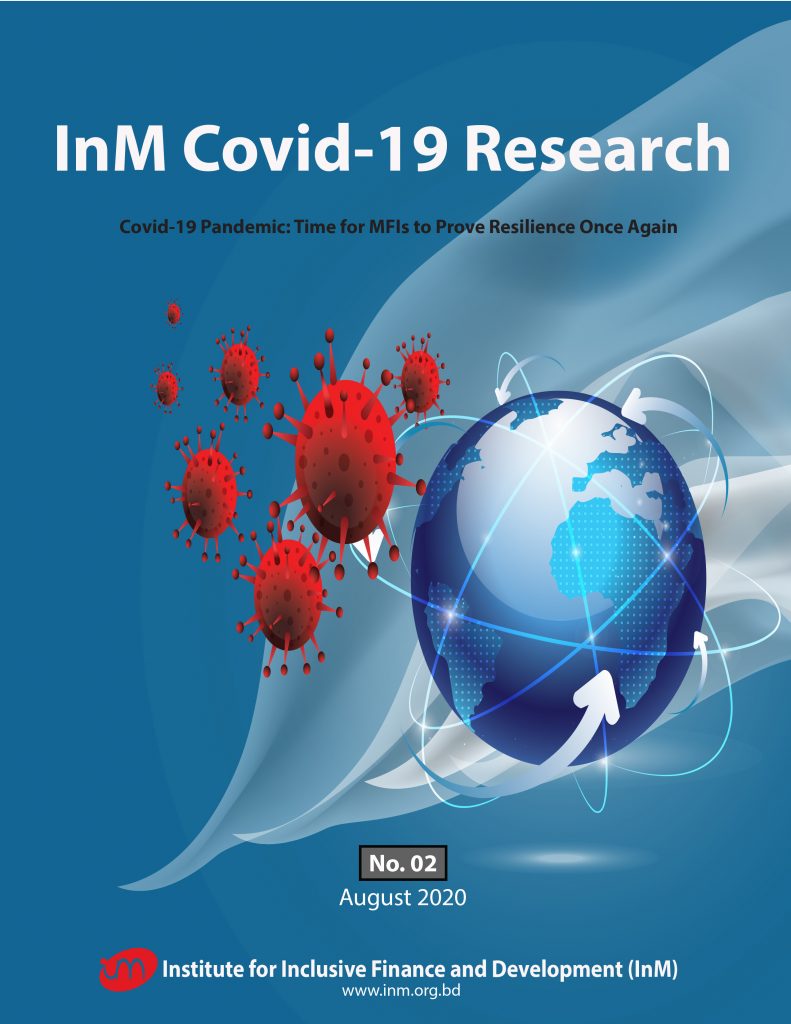 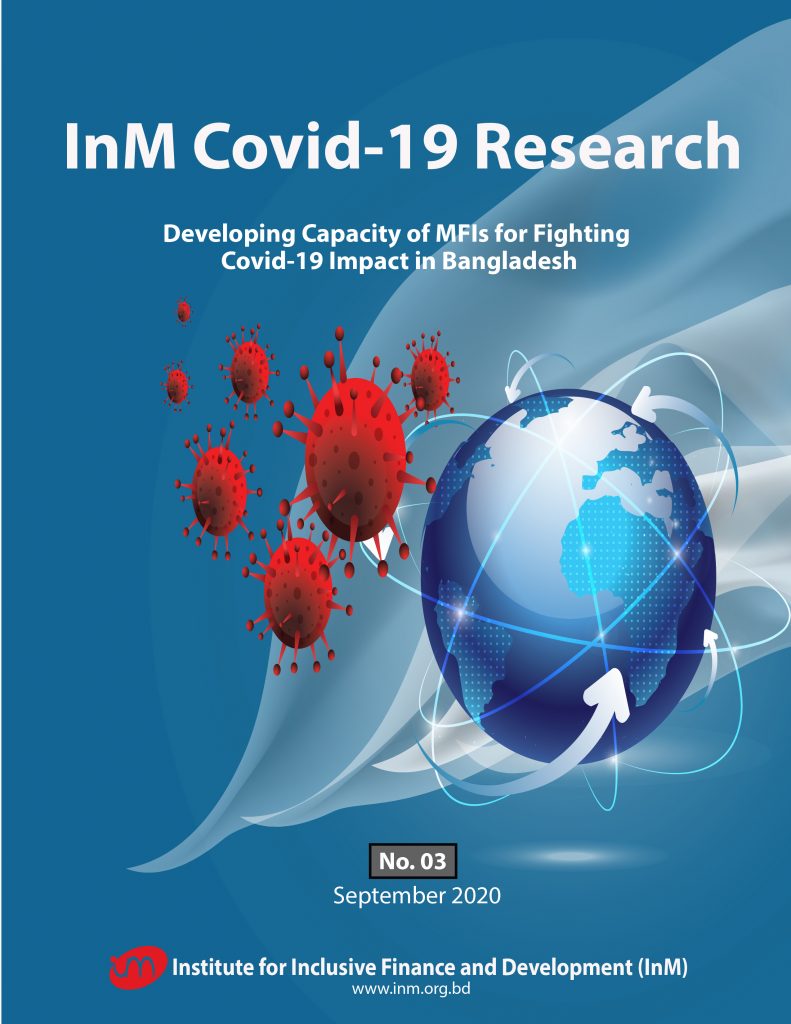
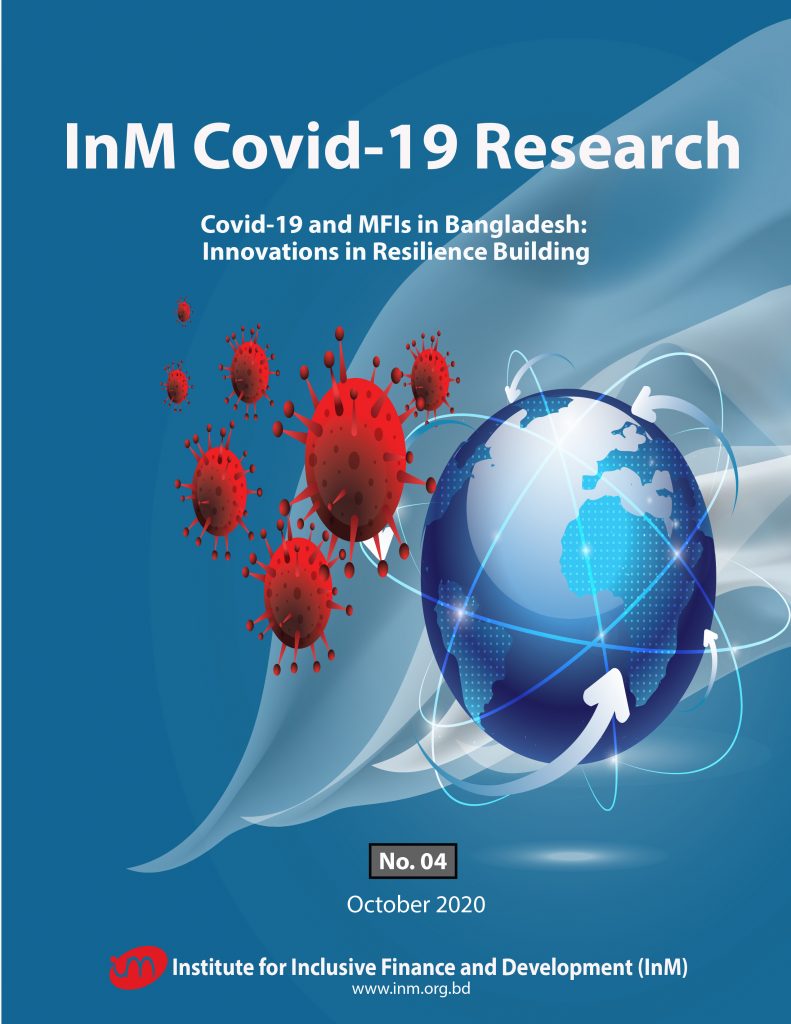 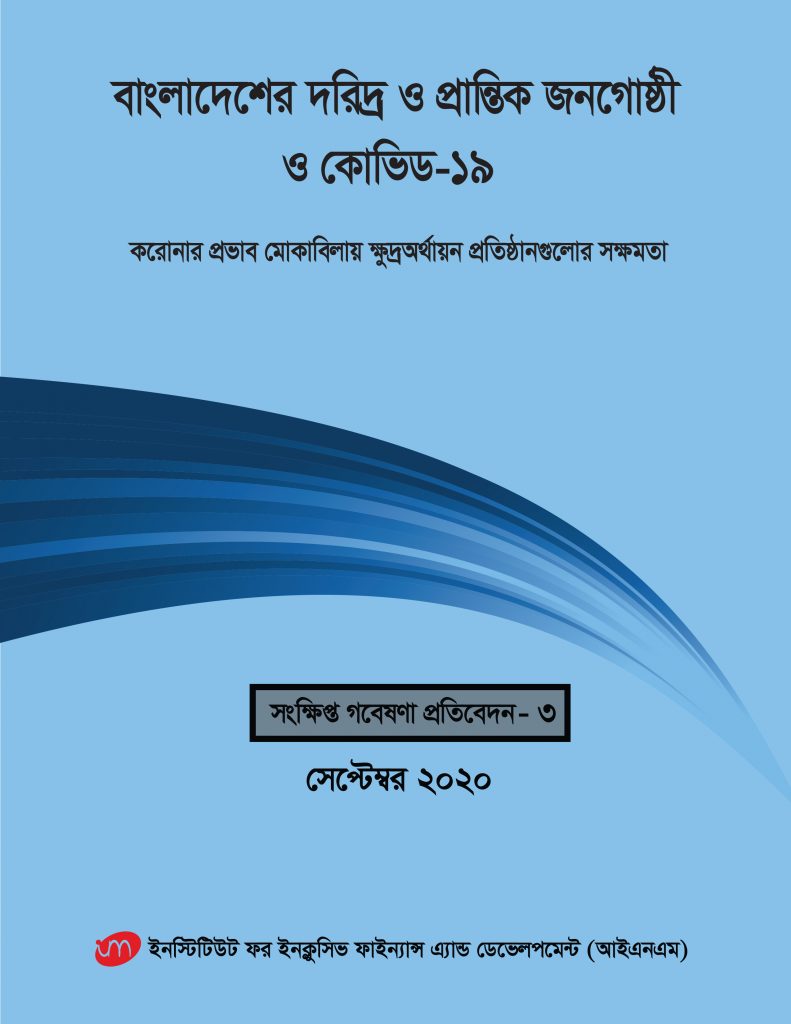
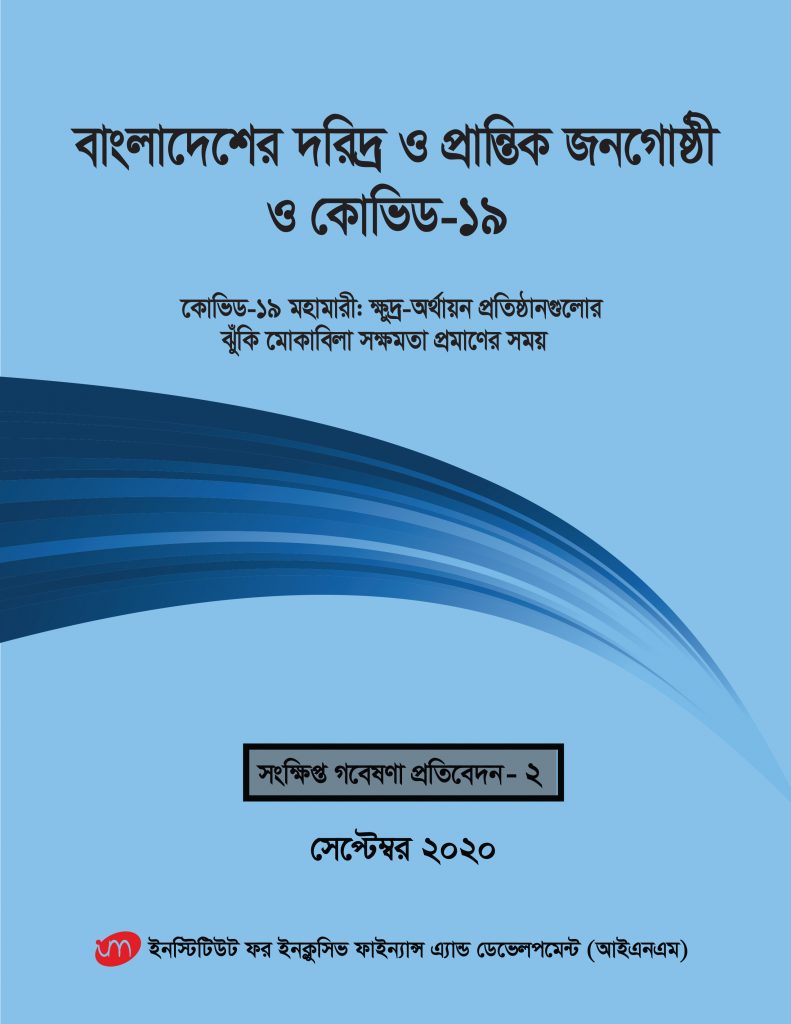  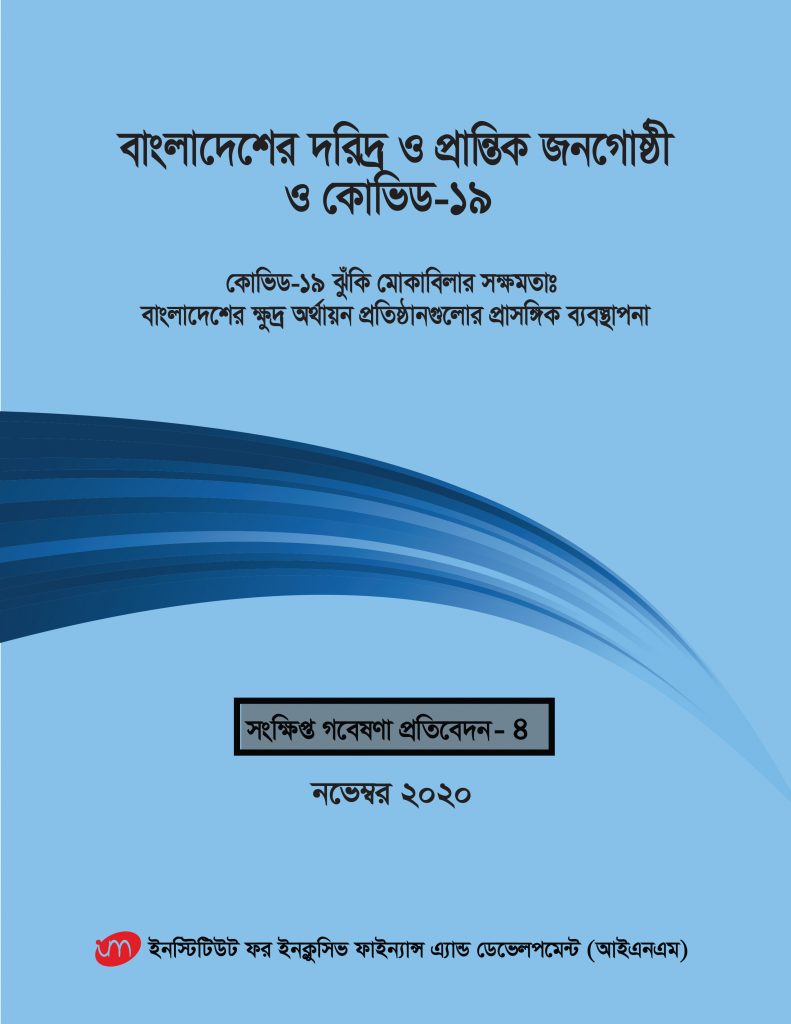
JOURNAL
Qard-al-hassan as a tool for poverty Alleviation: a case study of the fael khair waqf Program in Bangladesh Click here
Analysis of Dropout Behaviour among Borrowers of Microfinance Sector in Bangladesh Click Here
Microfinance in South Asia: Issues and Challenges during Covid-19 Crisis Click Here
An Analysis of Mobile Financial Services and Financial Inclusion in Bangladesh Click Here
FIN B
Webinar on Covid-19 Impact on the Rural Poor and MFIs
InM and Concern Worldwide, under the FIN-B umbrella, organised a webinar on “Covid-19 Impact on the Rural Poor and MFIs: Innovations in Resilience Building” focusing on the nature and level of impact of Covid-19 on the rural poor households and the microfinance sector of Bangladesh. The webinar was held on 5 November 2020. Read More webinar on “Covid-19 Impact on the Rural Poor and MFIs: Innovations in Resilience Building” focusing on the nature and level of impact of Covid-19 on the rural poor households and the microfinance sector of Bangladesh. The webinar was held on 5 November 2020. Read More
FIN-B Member’s Training Workshop on Mental Health and Professional Productivity
The Financial Inclusion Network, Bangladesh (FIN-B), an initiative of the Institute for Inclusive Finance and Development (InM), organised a workshop on ‘Mental Health and Professional Productivity’ in collaboration with Life-spring Consultancy Ltd. and KK Foundation on 25 February 2020. The workshop discussed the mental health issues that directly affect productivity in the work-life and on the ways of attaining a good work-life balance. InM Chairman Dr Qazi Kholiquzzaman Ahmad and Executive Director Dr Mustafa K. Mujeri attended the workshop along with the participants including Executive Directors of FIN-B member organisations, doctors, bankers, psychologists and development practitioners.
 
|
